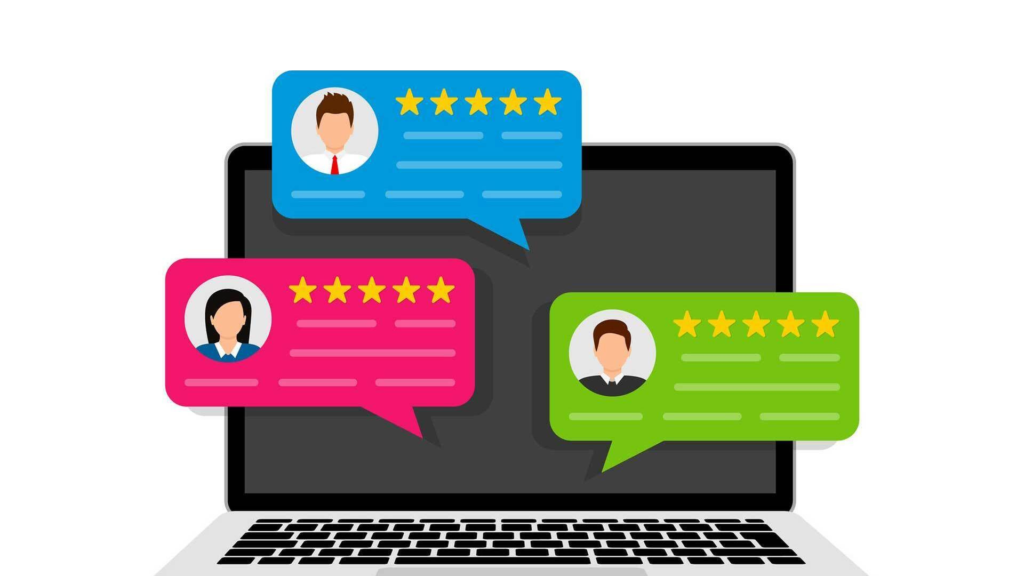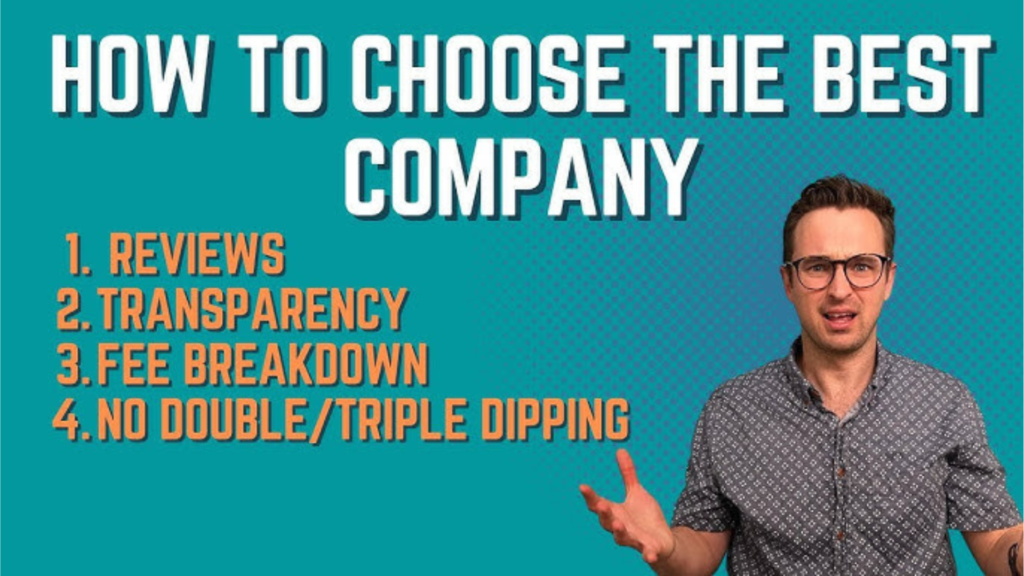Debt consolidation combines monthly debt payments into one payment at a reduced interest rate and adjusts your loan terms through a bank loan or debt-relief program. If done effectively, this process is more affordable and can save time switching between credit accounts and clearing debt.
Combining all your debts into a single payment can make your life easier. Still, you’ll need to choose an intermediary (a debt consolidation company) to help you negotiate. This step is essential and needs to be done for a smooth and efficient process.
While hiring a debt consolidation company is an excellent idea, there are questions you must ask to ensure you choose the right one. These questions will help you better understand how they operate, their services, and whether they’ll benefit your financial recovery.
13 Questions To Ask a Debt Consolidation Company
Not all debt consolidation solutions are the same, so it is essential to be very cautious when selecting a debt consolidation company. Try to start the process by asking the right questions as much as possible.

When you do, you learn more about the company’s fees, repayment plans, loan options, and any potential impact on your credit score. Here are 13 questions to ask the debt consolidation company before committing.
1. What Types of Debt Do You Consolidate?
Not all debts are eligible for consolidation, and not all debt consolidation companies deal with all types of debt. While some may provide debt settlement loans or assistance with medical and unsecured personal loans, others may specialize in consolidating credit card debt.
Before committing, confirm that the company can consolidate your specific types of debt. Ask whether they offer services like MCA debt consolidation if it is a business-related debt. Knowing what is covered can save you from wasting time on a company that doesn’t handle your debt needs.
2. What Are Your Fees and Charges?
Ask about all fees associated with debt consolidation. While some companies charge upfront, others may have monthly service fees or fees depending on a percentage of the debt being reduced. Also, some companies may charge monthly or cancellation fees for setup.
So, ask for a detailed breakdown of all the fees, including any hidden charges or additional charges associated with using a debt consolidation calculator or other services. A clearer picture of the cost can help you be better prepared to make an informed decision.
ALSO READ: How To Consolidate Business Debt
3. How Does the Consolidation Process Work?
A reputable debt consolidation company should be able to explain the entire consolidation process in detail. Ask how they will handle your debts, whether they negotiate with creditors on your behalf, if you’ll have a dedicated account manager, how long the process will take, and what you can expect from the program.
This will assist you in determining whether their process aligns with your financial goals. Additionally, understanding the consolidation process can make it easier for you to track progress and stay motivated.
4. Can You Guarantee Lower Interest Rates or Debt Reduction?
Be cautious of companies that promise guaranteed debt reductions or cuts in interest rates. No company can guarantee these results, as the outcome depends on negotiations and agreements with your creditors.

So ask whether the company has a proven track record of negotiating reduced rates, but be careful of absolute guarantees. Setting realistic expectations ensures that you are aware of the potential outcomes without being misled.
5. How Will This Affect My Credit Score?
Debt consolidation can affect your credit score, but the impact can vary. So, ask about how the consolidation process will affect your credit score over time. While consolidating credit card debt may positively cause a credit score impact by reducing your credit utilization ratio, some other debt settlement options can have a temporary negative credit score impact. However, with responsible management, consolidation can ultimately improve your score.
6. What Are the Terms and Conditions of the Repayment Plan?
Before you agree to anything, it’s important to review the terms and conditions of your repayment plan. Ask about the specific terms, including interest rates, monthly payment amounts, and how long it will take to complete the repayment plan. Being fully aware of these details will help you avoid unexpected surprises down the road.
7. What Happens If I Miss a Payment?
It’s important to understand how missed payments will be managed. Because missing payments can affect your credit score and could result in extra fees, increased interest rates, or even the termination of your consolidation plan.

So, find out about the company’s policy on missed payments and whether they provide flexibility or hardship options. This information gives you a better understanding of the potential outcomes, helps you manage your debt effectively, and ensures that your repayment plan remains on track.
8. Can I Still Use My Credit Cards During Consolidation?
Some debt consolidation plans may require you to close your credit accounts. In other cases, you may be allowed to keep them open. So, ask whether you can still use your credit cards after consolidation or if the company requires you to close them.
Closing your credit accounts can impact your credit score and affect your credit utilization. Understanding this from the beginning will help you make informed decisions about managing your credit.
9. What Are the Loan Options Available?
Some debt consolidation companies offer a range of loan options for consolidating debt, including secured and unsecured loans. Ask about available loan options, including the eligibility requirements, loan amounts, and repayment terms. Exploring different loan options will help you find a solution that fits your budget and repayment preferences.
10. Can You Provide Customer Reviews or Testimonials?
Customer reviews and testimonials provide valuable insight into a company’s reputation. Ask if they can provide reviews from previous clients or point you toward a platform or website where you can read customers’ feedback.

This can help you determine how dependable the company is, how well its customers are treated, and how satisfied the clients who have completed the debt consolidation plans are.
11. Are You a For-Profit or Nonprofit Company?
The type of company you choose to work for really matters. Typically, nonprofit organizations aim to offer affordable services; they are mission-driven rather than profit-driven and offer credit counseling. On the other hand, for-profit companies may focus on making money.
Therefore, it’s crucial to determine if the business is nonprofit or for-profit and how this may affect the services and fees. Knowing the company’s structure can help you make a well-informed decision for a resourceful, long-term debt management process.
12. Does the Process Carry Any Risk of Legal Action?
Sometimes, creditors may take legal action if payments are missed or delayed. So, make sure to ask the company if there is any risk of legal action during the debt consolidation process. It is always advisable to be aware of your legal rights and whether the consolidation process offers protection from lawsuits, wage garnishments, or other collection forms.
13. What Happens If My Financial Situation Changes?
Ask about how flexible the debt consolidation plan is if your financial situation changes. Life can be unpredictable, and you may encounter problems that make it hard to continue making payments.

So find out from the company how they handle such cases and if there are any options for temporarily reducing payments or adjusting your plan.
ALSO READ: How To Get Out of Business Debt in 7 Steps
What to Look for in a Debt Consolidation Company
Now that we know the 13 questions to ask a debt consolidation company before committing, it’s also important to know what to look for when searching for one. You need to consider some factors to enjoy a smooth debt management process. They include:
Reputation and Licensing
First, determine if the debt consolidation company is fully licensed and accredited by reputable organizations. Being accredited by organizations like the American Association for Debt Resolution (AADR), the International Association of Professional Debt Arbitrators (IAPDA), the Financial Counseling Association of America (FCAA), or the National Foundation for Credit Counseling (NFCC) assures you the company meets industry standards for ethical business practices.
Customer Service
A good debt consolidation company will put you at ease, and this is where customer service comes in. The customer support representative should be willing to answer all of your questions without hesitation and provide clear answers.
Also, the company should allow clients to communicate with them online or with a smartphone. Before making a commitment, make sure to check customer reviews about the company’s performance on its platform.

Transparency
A reliable company will provide precise details about its fees, available loan options, and repayment plans on its website. A company with nothing to hide should not have a problem putting all that information on its site to help consumers understand how to find solutions to their credit problems.
Counseling and Education
An overlooked but vital aspect of choosing a debt consolidation company is the financial education resource provided. Will you learn anything useful that will help you avoid future problems? The nonprofit organizations involved in debt consolidation are nearly solely responsible for educating and advising their clients.
This is because the IRS requires nonprofits to provide an educational facet to their service to retain tax-exempt status as 501(c)(3) organizations. So nonprofits do this by providing credit counseling and financial education resources almost always at no cost.
Why Should You Be Cautious With Debt Consolidation Companies?
While many debt consolidation companies operate with integrity, some may use coercive methods, withhold important information about costs and conditions, or give promises that sound too good to be true. These signs are often red flags that you should stay away from.
Additionally, some companies may charge outrageous fees, fail to communicate effectively or use complex terms that may be difficult to understand. So always read any contract or agreement carefully, especially the terms and conditions. You can also ask for recommendations from reliable sources before making a decision.

Remember that choosing the right debt consolidation company can significantly impact your journey to financial recovery. By asking these “13 questions to ask a debt consolidation company,” you’re setting yourself up for success.
Finally, ensure you understand the company’s offerings, fees, and potential impact on your financial situation. Whether you are dealing with a debt settlement loan or looking to consolidate credit card debt, the right company can be a valuable partner in your journey toward debt freedom and financial stability.

